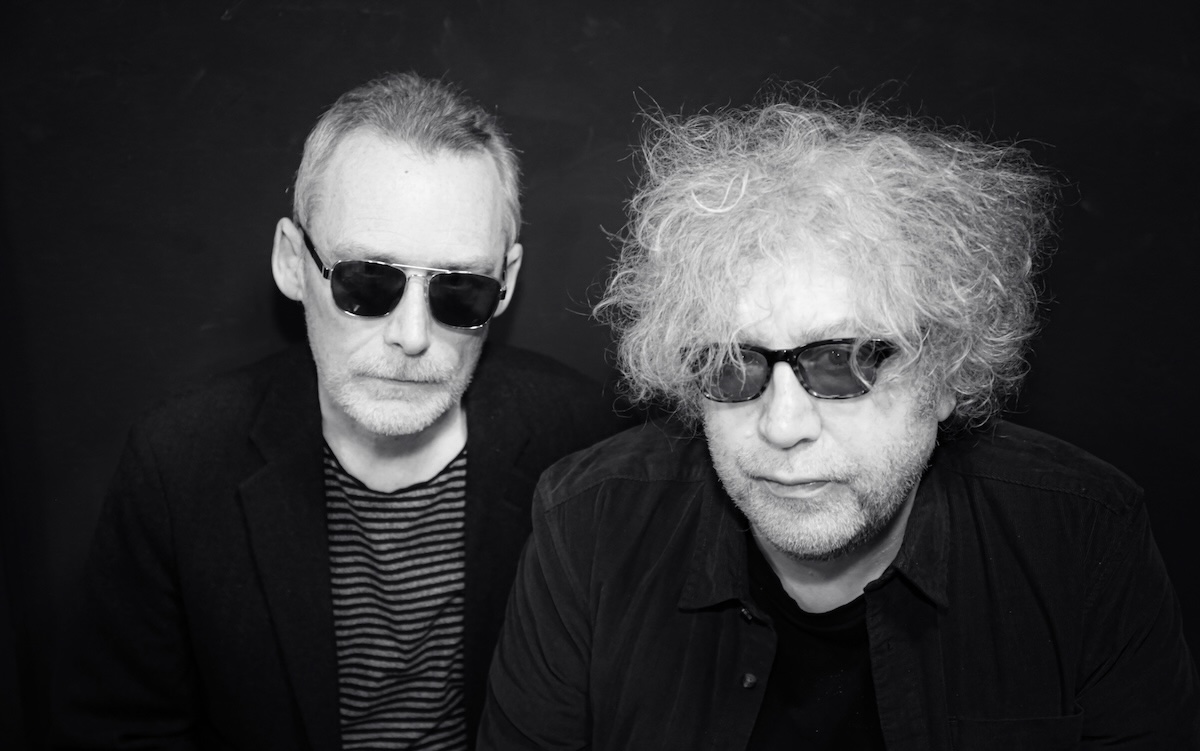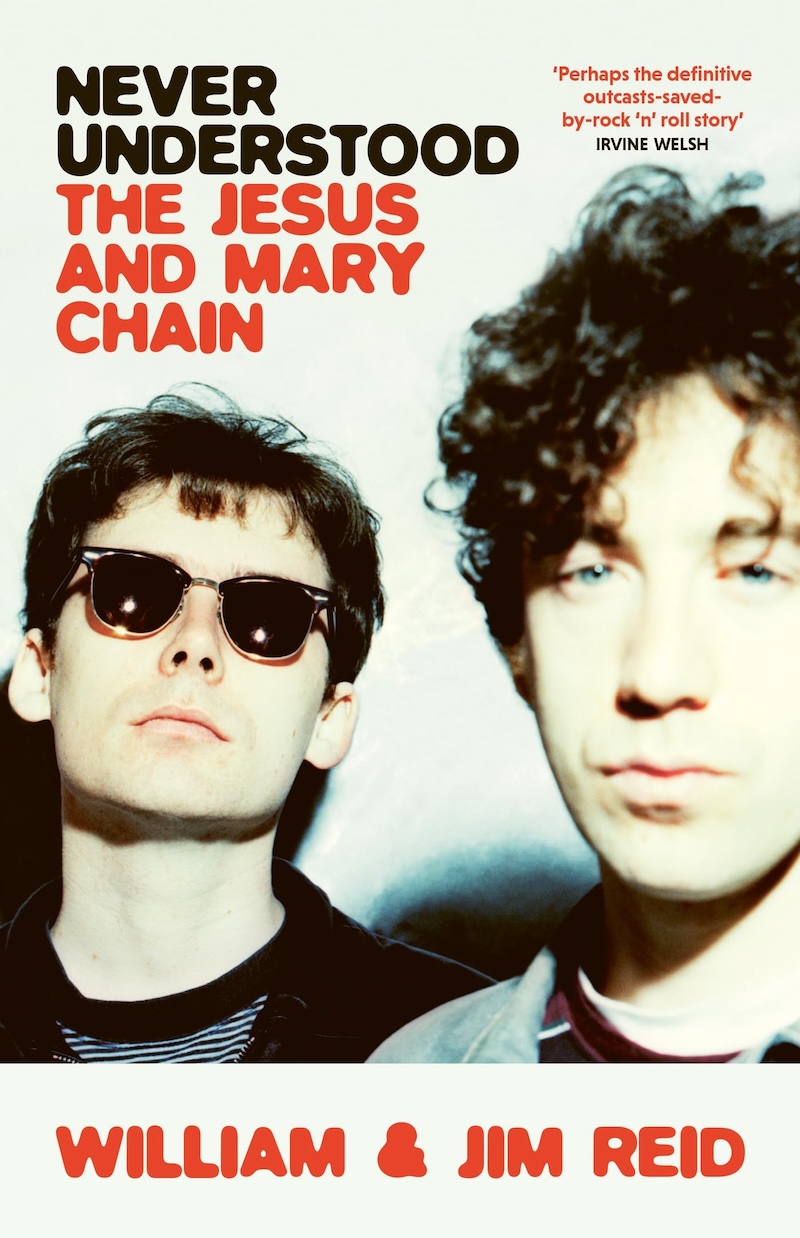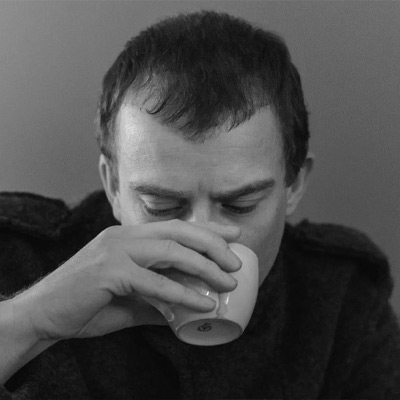Jim Reid looks back at the legacy of the Scottish noise-pop outfit ahead of their headline set at November’s Shiiine On Weekender

With last year’s Glasgow Eyes, their first Top 10 album since 1988 compilation Barbed Wire Kisses, and an autobiography in stores, a gentler but still uncompromising The Jesus And Mary Chain headline November’s Shiiine On Weekender. Jim Reid looks back at their legacy.
Who would have thought that, four decades on from Psychocandy, 1985’s notorious, eardrum-piercing debut album, Jim and William Reid would still be here, waving The Jesus And Mary Chain banner? They’ve weathered riots, drugs, and a sibling rivalry to match the Gallagher brothers’, but they also have eight studio albums behind them.
These days they’re older but wiser, perhaps partially thanks to the release last year of their joint autobiography, which forced them to confront their past. Never Understood is a thrilling read that shares the warts and all story of their ascent from an East Kilbride council estate, via nights spent sleeping in the doorway of a Kentish Town health centre, to the madness of their sudden success and the inevitable highs and lows that followed before they regained their rightful place at the top of festival bills today.
“I’ve often thought about where we would be right now without the band,” Jim contemplates. “Maybe we would have got into even more drugs and we’d have died young. Who knows…?”
Thanks for talking to Classic Pop. You weren’t really a fan of interviews back in the day…
To be honest, that was more William. I consider it a necessary part of what we do. At the very beginning, you didn’t know the ropes, so the first six months we struggled a bit. The thing with William is, ‘You do it, you’re better at it.’ Then, when we do one together, I can’t get a word in edgeways.
In 1984, NME announced that the band heralded “the arrival of an alternative musical apocalypse,” yet here you still are, making music. Does that mean you succeeded or failed?
All we ever tried to do was to make music that people would talk about 40 years later and hey! Job done!
You’ve come a long way from the guy that once said “If we only play 20 minutes, that’s an indication that we’re bored out of our skulls.”
I don’t even remember saying that. We only had 20 minutes worth of material, even with a couple of covers, so that’s what we did. But you have an audience out there and you have to take that into consideration, so we play the standard rock’n’roll show these days. I couldn’t have done an hour-and-a-half in 1985. I don’t think any of us could. Nowadays it’s more controlled, and – from my point of view – sober.
Do you still believe in the power of rock’n’roll?
I believe in the power of music. With us at that time, music was pop music and noise music combined. That was everything we wanted to do when we recorded Pyschocandy. We believed that if you got the right cocktail, it was possible, naive as it sounds, to change the way things worked. Things like Radio 1, their playlist was musical vomit to us, so we thought what we’ll do is make the kind of music that ought to be on the radio and we’ll try to actually get it on the radio. We believed it could make a difference.
And it did!
It did, but not in the way that we had expected. It wasn’t the tsunami we’d hoped. We really thought at the end of 1985 we’d be playing Psychocandy at Wembley Stadium!
Do you ever feel trapped by your reputation?
I used to. It doesn’t hurt so much anymore. Even if somebody just wants to talk about Psychocandy, it’s a pretty good record. There’s not many people that can make a record that people still want to talk about 40 years later. If people want to talk about that, I’ll talk about it. You want to talk about what we’re doing now? I’ll talk about that.
Well, we do, because last year’s Glasgow Eyes became your second highest charting album in the UK. Do you care about such things now?
Just as some indicator that you’re steering the ship in the right direction…? Yeah. But ultimately, no. If nobody buys it, at least you can think, ‘Well, I f*cking liked it,’ whereas if you make a record to sell records and it doesn’t sell, you’re standing there with this piece of shit thinking, ‘What did I do that for?’
The band originally came to an inglorious end in 1998 after, we believe, a punch up with the cast of Riverdance?
That was after William had left. About two or three days into the US tour, it just exploded, but I thought, ‘We’re going to get sued if we don’t do this tour, and I kind of like having a house!’ We were sitting in a hotel bar, middle of nowhere, and I heard these Irish accents. A guitar tech was talking to one of the women from the Riverdance cast, and suddenly it all kicks off. It was like one of those Hamlet cigar adverts. I’m just sitting there watching all of this mayhem. I tried to defuse the situation, but I couldn’t.
After returning for 2007’s Coachella, you staged your UK comeback at London’s Royal Festival Hall. Did that venue strike you as significant?
Yeah, there was a feeling of, ‘The good old Mary Chain are back!’ which was great because we were so used to being this ugly rash that people were trying to get rid of. To be the good old Mary Chain felt like strange territory. That’s worn off a bit now. We’re back to the horrible rash!

You and William published a joint autobiography last year. Did writing it provoke any disagreements?
No. We didn’t tread on each other’s blue suede shoes at all. There are things he says that I don’t agree with, and I’m sure there are things I’ve said… But that was the deal. Tell it as you remember it. That’s what we’ve done. I hate it when you read other people’s books and it’s all manicured and they don’t really want to tell you how f*cking crap everything was. I’m an alcoholic and I’ve taken loads of drugs. I hate it when people glamourise that shit. What I’m saying is that this is shit that happens, but it isn’t glamorous. I know that when I was young and other people used to say, ‘Don’t do drugs, kids, just say no,’ I’d think, ‘You stupid ole shite, you’ve had your fun. Let me have mine.’ I want to point to the experience that I had, and make of it what you will. If you want to become a junkie, I warned you.
The autobiography is called Never Understood. Do the Mary Chain remain misunderstood?
Absolutely. We’re the eternal outsiders. We never fit into any scenes. We were on Warners and never considered part of the big indie boom in the 80s. It used to drive us mad. Then Britpop and grunge seemed to miss us, too. Now I realise that’s a big part of what we’re about.
Is there a positive message behind the band?
F*ck ups can succeed. We are your classic loser material, but hey – we’re touring the world in a rock’n’roll band! People play too much by the rules, and what we wanted to show people is, ‘F*ck the rules!’
For further information on the JAMC click here
To book tickets to Shiiine On weekender click here
Featured image credit: Mel Butler
Subscribe to Classic Pop magazine here
Classic Pop may earn commission from the links on this page, but we only feature products we think you will enjoy.


